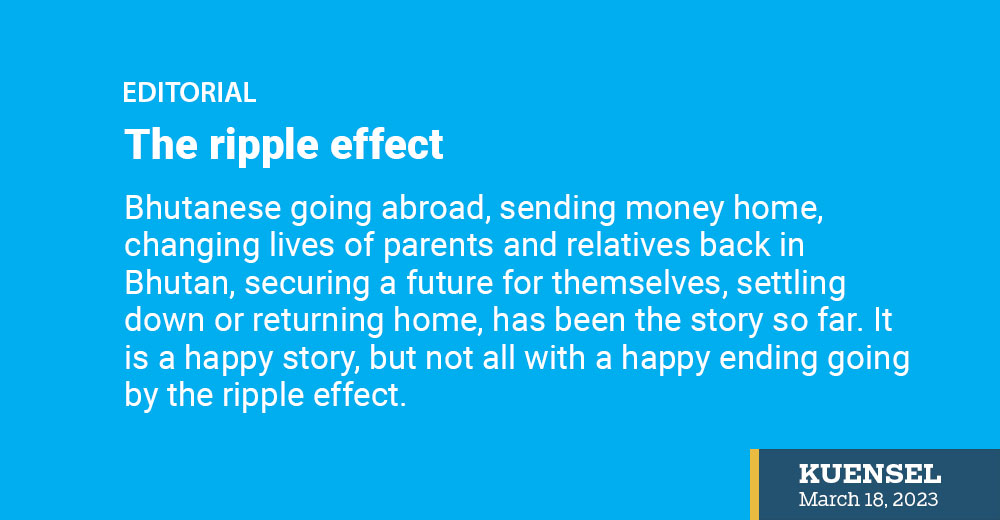Bhutanese going abroad, sending money home, changing lives of parents and relatives back in Bhutan, securing a future for themselves, settling down or returning home, has been the story so far. It is a happy story, but not all with a happy ending going by the ripple effect.
In retrospect we have not thought about how far that ripple ripples out. When the trend of going Down Under started, not many expected if it would lead to a brain drain or a mass exodus. Fresh university graduates or freshmen at work leaving was not a problem. It, in fact, eased the burden of creating jobs. When those in critical areas like teachers and health workers, engineers and those at the mid-career level – part of many succession plans – joined the march, it left a huge gap to fill.
The trend may not be reversing, but we are staring at a saturation point. With many finding it hard to find a job or a house, there is a caution. Getting a visa is only a start if it is self-funded. The problem starts from the airport. There are reports of some Bhutanese reaching the airport without the slightest idea of where to go or live.
Remittance is the latest concern. Whether people send dollars home or not, it was not an issue. Bhutan was never dependent on remittance. Remittance could help ease the burden on dwindling hard currency reserves. But it was not the main source like some of our South Asian neighbours. For those benefitting from a son or a daughter in Australia, the Ngultrum is more than enough.
What is concerning is the young people working and living in foreign land. Bhutanese are not only leaving for Australia where the safety and security network is better. What about the hundreds of young girls in the Middle East and beyond? What about the others who cannot cope up with pressure, study or work, especially when they have to earn to pay for studies, food and shelter?
Although not officially confirmed, there are talks of many selling their property at home to invest abroad. Landlords, it is said, are beginning to worry as vacating notices increase. It might help bring down rents, but the ripple effect could hit the economy. No house is built without loans and no landlord would have rented out without calculating their dues to banks.
There are bigger issues at home than Bhutanese going to Australia, Canada, India or the US. But it cannot be ignored.
We can surmise that there are about 5,000 Bhutanese in foreign land who are eligible to vote and given the postal ballot facility. Only 676 registered to vote in the National Council elections next month. What is it indicating?


